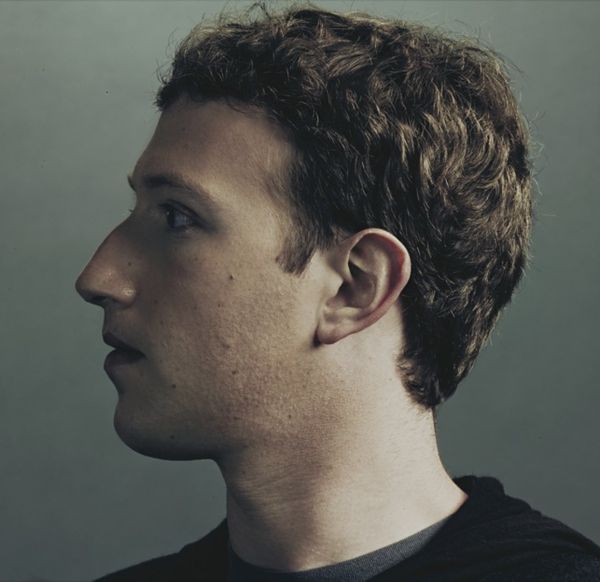
The Facebook Reckoning
There’s a lengthy, excellent profile of Mark Zuckerberg, and by proxy Facebook, in this week’s issue of the New Yorker, written by Jose Antonio Vargas. In it, I’m quoted saying about Mark, “If you are twenty-six years old, you’ve been a golden child, you’ve been wealthy all your life, you’ve been privileged all your life, you’ve been successful your whole life, of course you don’t think anybody would ever have anything to hide”. That’s an accurate quote, but there’s even more nuance to my feelings about Facebook than merely remarking on the privilege of its CEO.
First, the requisite disclaimers: I like and use Facebook; I have many friends, including some good friends, who work at the company at all levels of its hierarchy. I’ve met Mark Zuckerberg a few times, and while we aren’t friends, our few interactions have been nothing but cordial. My business partner Michael Wolf famously tried to acquire Facebook during his time at MTV Networks and thinks highly of Mark. The tech projects that I influence, from Gourmet Live to ThinkUp deeply integrate Facebook into their core functions. So I’m not a knee-jerk anti-Facebook reactionary.
The truth is, I care deeply about the culture of the web, and am concerned that many of the decisions Facebook makes are detrimental to its culture, particularly when Facebook inadvertently imposes an extreme set of values on its users without adequately communicating the consequences of those choices.
I’m not the first to raise these issues, particularly in the context of Facebook’s stance on privacy. The cover of Time magazine a few months back was about Facebook’s privacy issues. Mark responded with a lengthy and somewhat vague response to the concerns, indicating that he realizes the seriousness of the challenge these issues pose for the company. At the time, a scrappy upstart efforts called Diaspora* captured the imagination of those who are frustrated by Facebook’s repeated inability to address these issues and raised nearly $200,000 from thousands of donors who hoped to sponsor a significant challenge to Facebook’s domination of large-scale social networking. And of course The Social Network, the massive movie based on Facebook’s early founding, is only two weeks from release.
But actually, I don’t care that much about privacy.
I started blogging when I was younger than Mark is today, and have shared a lot more information publicly about every aspect of my life than he ever has. It’s been eight years since I wrote about privacy through identity control, and the key point there seems as relevant today as it did then:
We’re all celebrities now, in a sense. Everything that we say or do is on the record. And everything that’s on the record is recorded for posterity, and indexed far better than any file photo or PR bio ever was. It used to be that only those who chose career paths that resulted in notoriety or celebrity would face having to censor themselves or be forced to consciously control the image that they project.
What I do care about is this company advocating for a pretty radical social change to be inflicted on half a billion people without those people’s engagement, and often, effectively, without their consent. As we saw with the rollout of Facebook’s user names feature, the tech industry is very poorly equipped to talk about complex issues of identity and strongly prefers to talk about companies and features instead of communities and choice.
Because, let’s be clear, Facebook is philosophically run by people who are extremists about information sharing. Though I choose to talk about my politics, or my identity, or my medical history or my personal relationships, I can do so primarily because I have the privilege to do so thanks to my social standing, wealth, and the arbitrary fact of being born in the United States. I also have an identity that isn’t considered offensive or off-putting enough to face serious repercussions.
But what if I weren’t my own boss? What if my family couldn’t accept parts of my identity? What if I weren’t technologically savvy enough to know how to engage with all of the choices about public sharing that Facebook forces me to understand? What if it were important to my own personal identity that public representations of me be colored purple instead of blue, as on Facebook? It’s easy to say all of our choices and all the aspects of our identity can be shared if we don’t face any serious social or personal consequences for doing so. But most of us are not that fortunate.
I’d say today’s story obliquely covers that as well.
Colors don’t matter much to Zuckerberg; a few years ago, he took an online test and realized that he was red-green color-blind. Blue is Facebook’s dominant color, because, as he said, “blue is the richest color for me—I can see all of blue.”
As it turns out, the way we can all express ourselves on Facebook today is literally constrained by the limits of what Mark Zuckerberg can see. I’ve been in environments that were constrained in similar ways; The first time I entered the Harvard Club here in New York City to visit with a friend, I felt very acutely the implicit judgments of an environment where the fact that I don’t have a college education was considered a relevant way to judge my identity. And though I use Facebook, I don’t ever forget that it was conceived as a private club for members of the Ivy League as well.
Perhaps by engaging more with its users in an honest way about its radical stance on public sharing, and by clearly articulating the social costs that can arise from that stance, Facebook can become as truly inclusive as it strives to be.